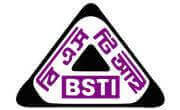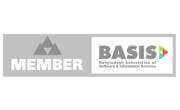Starting an Import-Export
1. Starting Out With Importing and Exporting
Let’s begin with the essential considerations hopeful entrepreneurs need to make to get involved in the industry. First, if someone is interested in starting an import/export business, it is helpful to have a business background to fall back on, or perhaps knowledge of global finance, international relations, trade theory, or even public policy. These sorts of interests and academic fields are helpful in draw understanding from when attempting to understand the processes of buying and selling from a company and supplier that is located overseas.
2. The Right Individual for the Job
Not everyone is prepared to enter the turbulent, exciting waters of international trade. Even successful entrepreneurs with a proven track record sometimes do not have what it takes to focus on importing and exporting. An importer/exporter must have impeccable organizational skills and thrive on attention to detail. At the same time, he/she must also be used to making sales pitches to various parties in various parts of the world.
However, if you are enthusiastic, organized, and motivated, you might have a future in international trading. It also helps if he/she is creative, full of new ideas, and ready to travel and experience different cultures. Of course, if the entrepreneur has been building up to this career move and has a background in trading, they will be more prepared for both the highlights and rigors of the position. If you do not have a background in importing/exporting, we suggest you spend plenty of time researching your chosen field and the topic at large so that you are ready to go when the time comes. Keep reading for more knowledge and tips that should prove helpful, even before you get your feet wet.

3. Business Basics
If entrepreneurs are dedicated to starting an import/export business, they may want to review your business basics and know-how. This depends on their level of experience and if they have started or run a business before since there is some overlap. Individuals will want a name for the company that fits their products and is eye-catching. They will want to secure a website and domain name and get established on social media. Registering the business in the state where the business will be located is also on this list, as well as procuring business licenses. Also, starting an import/export business is just like starting any other company: entrepreneurs will need a detailed and comprehensive business plan.
Much of these nuts and bolts can be applied to any new business, yet one unique aspect of an import/export business plan is to make sure that it covers the specific regulations and rules of the market you have chosen. Individuals need to take the time to research the regulations surrounding the goods/products that they have chosen to import or export. Whenever a business is going to deal with other countries, they must take into account additional legal requirements and make sure that everything is coordinated with federal guidelines, including insurance.
Energetic entrepreneurs who are interested in importing exporting will also need access to substantial capital. Depending on the type of company you are starting and what you are importing and/or exporting, a little research into startup costs for a new business can go a long way.
4. Choosing a Product
A crucial next step for a prospective importer/exporter is fairly apparent: what is the product that you want to sell? What industry are you passionate about, and what goods do you think you could sell in international markets or import and sell in your US location? This search depends on the nature of the entrepreneur. What are your interests, and what ideas have your diligent research yielded? While it is always a good idea to follow your passions and work with concepts that you know and are familiar with you, there is another angle to this. Where is the demand? For example, if you are considering importing bicycle tires made of rubber that is exclusively made in Europe, take a step back before placing your first order. Is there enough demand for high-quality bicycle tires in the area (physical or online) where you plan to make your first few sales?
When choosing a product, you may want to consider a few different traits:
- Availability: Where is the product made, and are there places that cannot produce it? How much demand is there for this product in the areas you wish to serve?
- Image: From German beers to Italian pasta, some products come with a sense of image and cachet. Likewise, people will pay more for imports with a certain idea. Where does your product stack up?
- Price: With the main example of Chinese electronics, some products are more inexpensive to import than others, meaning that they might be profitable for you to look into.
Generally, countries that import products that are either produced more efficiently elsewhere have an image that is related to that country or are actually of better quality because of the natural resources or traditions they contain, as is the case with Egyptian cotton. On the other hand, countries export goods that they can produce inexpensively, hoping to create a favorable profit margin. There are two factors that make products easier and less expensive for one country to create than another: technology and resources. Is it any wonder that so much oil comes from the middle east?
5. Target Market
Once you have decided on a product or series of products, the next task is to identify the market. A business simply cannot exist without its customers, so you will need to plan out who your clients will be, where they will be drawn from, and how you will entice them. So, it is back to the books for more research. Market research, if done well, can help increase profits and prepare you for the first day of sales. While the first few months of a new business can always provide challenges, knowing your target market and being able to focus on them makes things easier.
Are you able to spot trends, or is someone on your team able to predict which products will become popular next? Generally, the top products for an importer/exporter are those that are right on the verge of becoming popular. Promising product lines can create a splash for your business when they suddenly catch fire, and you want to be first to the party, not last. Test out your ideas, solicit opinions on your products, and even try giving some away at first for reviews and feedback. All of this preparation will prepare you for your exciting foray into importing/exporting.
6. Research for Marketing
Each of these areas will warrant some deep research:
- The nature of the service or product you plan to sell
- The countries or countries you will deal with/export/import from
- The channel of trade you will employ (distributor, representative, or direct sales)
- The client you have decided on (government, business, mass-market, hospital or medical or others)
Diving into these categories and including some of this information in your business plan will help you to become an informed and competent importer/exporter and increase your chances of quickly becoming a profitable company.















